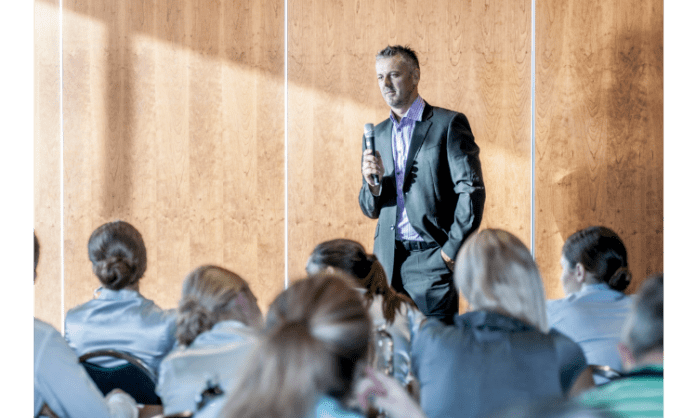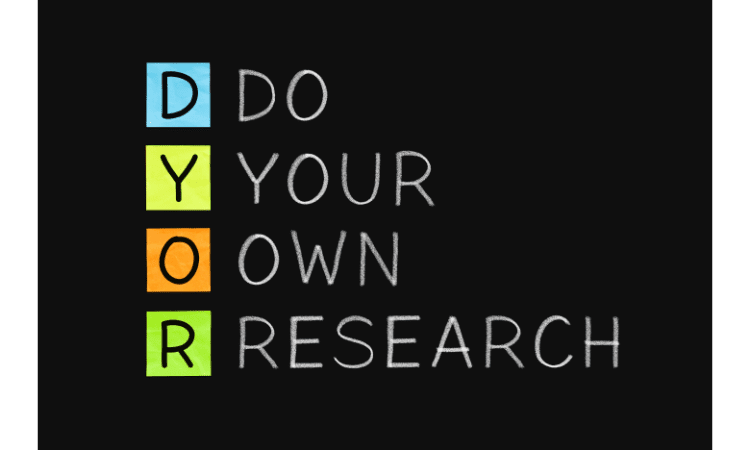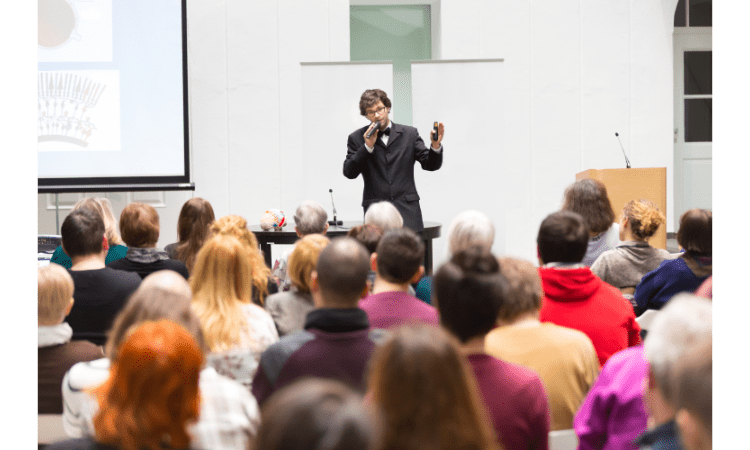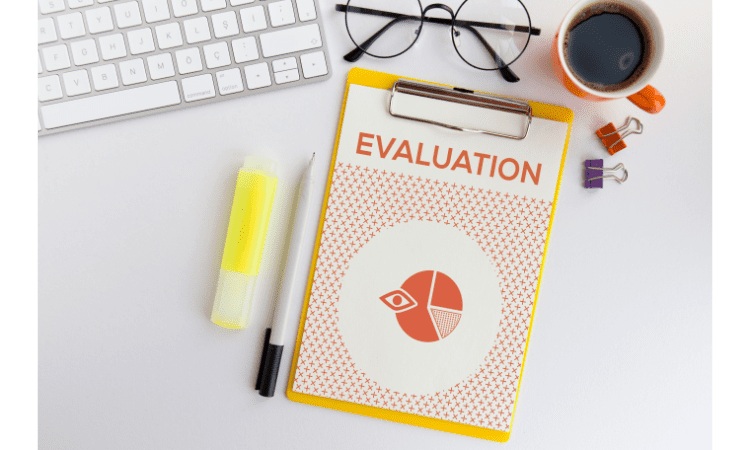
Public speaking can be intimidating. Even if you’re a naturally outgoing person and have always been comfortable speaking in front of crowds, learning how to deliver a persuasive speech can be a challenge.
The good news is that public speaking is something that can be learned and improved with practice. Whether you’ve got a big presentation coming up or just want to practice your delivery for the next time you’re asked to give an impromptu talk at work, here are some tips to help you become a better public speaker. In this article, we’ll talk about what public speaking is, why it’s so important, and how to get started improving your skills.
Tips to become a confident and better public speaker
Study other people’s speech

If you’re trying to become a better public speaker, the first thing you should do is study other people’s speeches. Watch their videos, read their transcripts, and listen to them speak. Then, write down some of the things they did well—and some of the things they could have done better.
People tend to be more comfortable with the way that they talk than with the way other people talk, so when you watch someone else’s speech, you’ll be able to pick up on things that you might not notice in your own speech. This can help you become a better public speaker by helping you identify areas where your own speech could use improvement.
Practice

The best way to become a better spokesperson is to practice. If you’re nervous about speaking in front of people, it’s okay. We’ve all been there. The first step is just to get out there and practice your speech over and over again until you’re comfortable with it. Start by standing in front of a mirror and reading aloud the speech you want to deliver. Then move on to practicing in front of friends or family members who will give you honest feedback about what they think works and what doesn’t work. The more times you practice, the better you’ll get at delivering a speech effectively and confidently.
The more you do this, the more confident you’ll become and the easier it will be for you to give a good presentation. You can even practice by yourself at home or with friends before presenting in front of an audience.
Connect with the audience with a personal story

The best way to connect with your audience is to tell a personal story. When you’re telling a story about yourself, you’re able to share some of your personality, which will make the audience feel like they know and trust you more.
When you’re telling a personal story, start by explaining who you are and what your life is like. Telling a personal story shows that you’re human, and it also helps the audience see how you’ve overcome challenges or made mistakes in the past. Your story will resonate with your audience because they can relate to it and learn from it. Then move on to how this particular event or experience shaped your life or changed things in some way. Finally, wrap up by describing how it affected you and what it taught you about yourself or others.
Know your audience

Knowing your audience is key to being a better public speaker. The first step in becoming a better spokesperson is knowing your audience. Before you even start to think about what you want to say, you need to know who you’re speaking to and what their expectations for the speech are. You may be speaking at an event where the people in attendance are highly educated or at one where they are not. You also have to consider whether or not they are going to be familiar with the topic of your speech or if it will be new information for them.
You should also consider the time and place of your speech, also note how long it’s expected to last. All of these things can affect how long you should plan on talking and what kinds of things you can expect from the people in attendance.
If you don’t know anything about these things, then chances are that most of your audience doesn’t either. So before you go into preparing your speech, make sure that you do some research on who will be there and why they might want to hear what you have to say so that they can get something out of it themselves.
You make your own topic

The first step to grooming yourself as a better public speaker is to make your own topic. You can’t expect to be able to speak on a topic that you don’t have any interest in or knowledge of. Good topics are things that you are passionate about, or that you have experience with. You can choose to speak about something completely new or something you’ve been doing for years. The best topics are ones that seem like they would be fun to present.
You should also make sure that the topic isn’t too broad or too narrow—that is, it should be specific enough so that you can give people some information about it, but not so specific that it’s difficult for them to follow along or understand what you’re saying. There are many things that can help you become a better public speaker—from practicing your speech to working on your body language, and even using presentation software.
Make eye contact with the audience

Eye contact is one of the most important things you can do to improve your public speaking skills. When you’re talking to an audience, it’s important to make eye contact with people in different parts of the room so that you don’t appear to be looking at one person all the time. If you are facing one side of the room, it’s best to look at those people who are directly in front of you first and then move on to those people who are sitting farther away from you.
The reason why this is so important is that when we talk with someone, we tend to look at their eyes rather than their mouth or nose. When we do this, it helps us understand what they’re saying better because our brains process visual information much faster than auditory information.
Use the stage to your advantage

To become a better public speaker, use the stage to your advantage. When you’re standing at the front of a room, you don’t have to worry about the audience seeing you from every angle. The audience will be looking at you straight on, so it’s important that you make sure they can see everything that’s happening with your face and body. You don’t want anyone in the back row to miss out on a funny expression or subtle gesture that could make your speech more engaging.
Be mindful of where people are sitting in relation to you—if someone is looking away from you, try drawing their attention back with an interesting prop or gesture. You can also use your body language to put emphasis on certain parts of what you’re saying by using broad gestures for big points or small gestures for finer details.
Evaluate yourself speaking

If you want to become a better spokesperson, you should first evaluate yourself speaking. This means that you should watch videos of yourself speaking and pay attention to how people react when they hear your voice. You want to make sure that people are paying attention to what you are saying and not just waiting for an opportunity to interject or get up and leave the room.
You may also want to try practicing in front of a mirror so that you can see the physical reactions others have when they hear your voice. This will help you understand how other people perceive your delivery style and what they find engaging about it.
Make a last impression with a strong conclusion

In the final few moments of your speech, it’s important to leave a lasting impression on your audience. A strong conclusion is important because it gives your audience closure, which can help them remember what you said more easily. It also allows you to end on a note of positivity and optimism. Your last impression should be just as strong as the first impression—and it’s even more important to make sure that impression is positive. The conclusion is where you can tie your speech together and show how everything you discussed relates back to the original point. You may also want to emphasize what you learned from the experience in order to make it meaningful.
Conclusion
In conclusion, making yourself a confident and effective public speaker takes practice and dedication. It’s important to set clear goals, practice your delivery, and get feedback from others. Additionally, it’s crucial to overcome fear and nervousness by understanding the audience and using techniques like visualization and deep breathing. Remember to also use body language and vocal variety to add emphasis and engagement to your speech. With these tips and a consistent effort, you will be well on your way to becoming a confident and effective public speaker.











